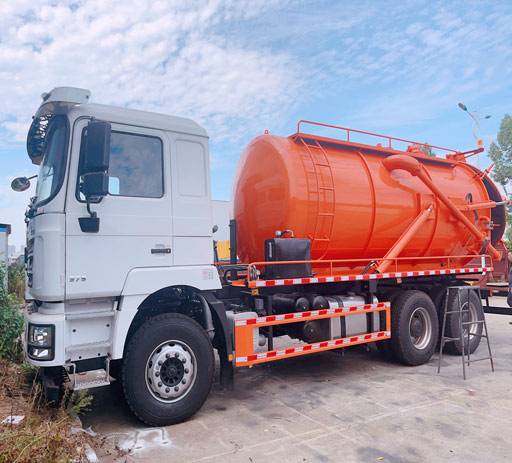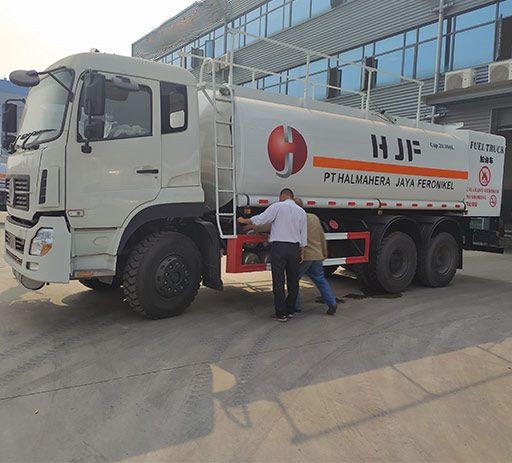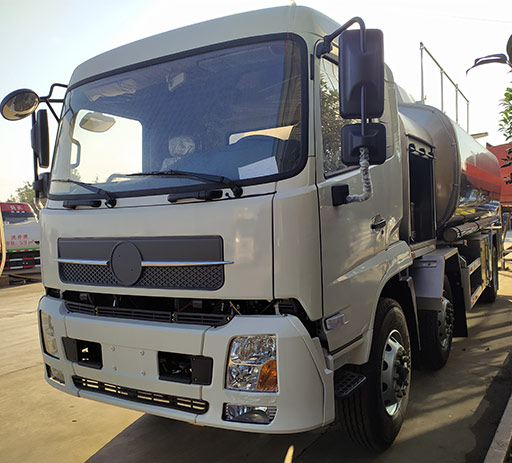Understanding Garbage Truck Tailgates: Purpose, Design, and Tips for Maintenance
Introduction
Garbage truck tailgates may seem like a simple component of waste collection vehicles, but they play a crucial role in the efficiency and effectiveness of refuse management operations. Designed for loading and unloading waste materials, the tailgate of a garbage truck is engineered to withstand the rigors of daily use while contributing to the overall functionality of the vehicle. In this article, we will explore various aspects of garbage truck tailgates, including their functions, types, maintenance tips, and practical examples. Whether you are involved in waste management or simply curious about how garbage trucks work, this comprehensive guide will provide you with all the necessary information.
1. The Role of Garbage Truck Tailgates
1.1 Primary Functions
Garbage truck tailgates are designed to perform multiple functions that are essential for efficient waste collection:
- Securing Waste: Tailgates help keep the collected waste securely in the truck, preventing spillage during transit.
- Facilitating Loading and Unloading: Tailgates enable easy loading of waste materials into the truck and unloading at the processing site.
- Enhancing Compacting Efficiency: Many garbage trucks have tailgates that work with compactors, allowing for better waste compression.
1.2 Importance in Waste Management
The efficiency of garbage truck operations relies heavily on the design and function of the tailgate. By maintaining a closed barrier, tailgates ensure that the waste is contained until it reaches a designated disposal location. This containment is vital for hygiene, safety, and environmental compliance in waste management practices.
2. Types of Garbage Truck Tailgates
2.1 Standard Tailgates
Standard tailgates are the most common type found on garbage trucks. They are usually hinged at the top and open downwards to allow for easy loading and unloading of waste.
2.2 Compaction Tailgates
These tailgates are designed with in-built compactors that compress the waste as it is loaded. Compaction tailgates maximize the load capacity of the truck, reducing the number of trips needed for waste disposal.
2.3 Sliding Tailgates
Sliding tailgates move horizontally rather than swinging down, which can be beneficial in tight spaces. They provide enhanced loading access, especially when working near obstacles.
3. Key Features of Garbage Truck Tailgates
3.1 Material Construction
Garbage truck tailgates are typically made from durable materials like steel or aluminum to withstand the harsh conditions of waste collection. These materials are also resistant to corrosion and wear, which prolongs the lifespan of the tailgate.
3.2 Hydraulic Systems
Many modern garbage truck tailgates utilize hydraulic systems for smooth operation. These systems allow for easy lifting, lowering, and compacting of waste without the need for heavy manual labor.
3.3 Safety Features
Safety is paramount in waste management. Tailgates are equipped with features such as locks, warning lights, and reflective strips to ensure safe operations, particularly in low-visibility conditions.
4. Maintenance of Garbage Truck Tailgates
4.1 Regular Inspection
Conducting regular inspections of the tailgate ensures that any signs of wear and tear are addressed promptly. Check for rust, cracks, or malfunctioning hydraulic components that may affect performance.
4.2 Cleaning and Lubrication
Cleaning the tailgate after each use helps prevent the buildup of debris and waste residues. Lubricating moving parts, such as hinges and hydraulic systems, will enhance operational efficiency and prevent mechanical failures.
4.3 Replacement of Damaged Parts
Replacing worn or damaged components is essential for maintaining the functionality and safety of the tailgate. Engage a professional mechanic when replacement parts are needed to ensure that compatibility and safety standards are met.
5. Practical Examples of Garbage Truck Tailgates in Use

5.1 Urban Waste Management
In urban environments, garbage trucks with compaction tailgates are crucial. They optimize space and minimize the number of trips required to a landfill, which can help reduce fuel consumption and operational costs.
5.2 Recycling Collection
Tailgates designed for recycling collection often come with special compartments that allow for the separation of recyclable materials. This ensures that the waste is disposed of properly and helps promote sustainable waste management practices.

5.3 Construction Sites
Garbage trucks with heavy-duty tailgates are commonly used at construction sites. These tailgates can handle the weight and bulk of construction debris, making them ideal for transporting solid waste to disposal facilities.
6. Innovations in Garbage Truck Tailgate Design
6.1 Smart Tailgates
Some manufacturers are integrating smart technology into garbage truck tailgates, enabling operators to monitor the loading and unloading process via mobile applications. This technology enhances operational efficiencies and safety.
6.2 Eco-Friendly Designs

Innovations for eco-friendly tailgates focus on materials that are recyclable and lighter, which can contribute to fuel efficiency. These designs reflect the ongoing push toward sustainable practices in waste management.
7. Tips for Operating Garbage Truck Tailgates
7.1 Training Operators
Proper training of operators is crucial for safe and effective use of garbage truck tailgates. They should be well-versed in operating hydraulic systems and understanding safety mechanisms.
7.2 Load Distribution
It’s essential to maintain balanced load distribution within the truck as unevenly loaded tailgates can pose safety hazards and increase wear and tear on the vehicle.
7.3 Follow Manufacturer Guidelines
Always adhere to the manufacturer’s specifications and guidelines for tailgate operation and maintenance to ensure the longevity of the equipment.
8. Common Issues with Garbage Truck Tailgates
8.1 Hydraulic Failures
Hydraulic system failures can render the tailgate inoperable. Regular maintenance and proper care can help mitigate this issue.
8.2 Wear and Tear
Constant usage can lead to wear on hinges, seals, and other components. Staying proactive with inspections can help catch these issues early.
8.3 Environmental Challenges
Extreme weather conditions can impact the performance of tailgates. Operators should be aware of the impact of freezing temperatures or excessive heat on their equipment.
9. FAQs about Garbage Truck Tailgates
9.1 What should I do if my garbage truck tailgate won’t open?
If the tailgate fails to open, check the hydraulic fluid levels and any visible physical obstructions. If the issue persists, consult a professional mechanic.
9.2 How can I identify if my tailgate is damaged?
Signs of damage may include visible cracks, rust, or an inability to close fully. Any unusual noise during operation can also indicate damage.
9.3 Can I install a tailgate on my existing garbage truck?
Yes, it is possible to install a compatible tailgate. However, it is advisable to consult with a professional to ensure compatibility with your vehicle’s systems.
9.4 What is the average lifespan of a garbage truck tailgate?
The lifespan of a garbage truck tailgate can vary depending on usage and maintenance, but they typically last between 5 to 15 years.
9.5 Are there any eco-friendly tailgate options available?
Yes, some manufacturers now offer tailgates made from recyclable materials, which contribute to more sustainable waste management practices.
9.6 Where can I find replacement parts for garbage truck tailgates?
Replacement parts can often be found at specialized auto repair shops, through the truck’s manufacturer, or from online retailers that focus on heavy-duty vehicle parts.
